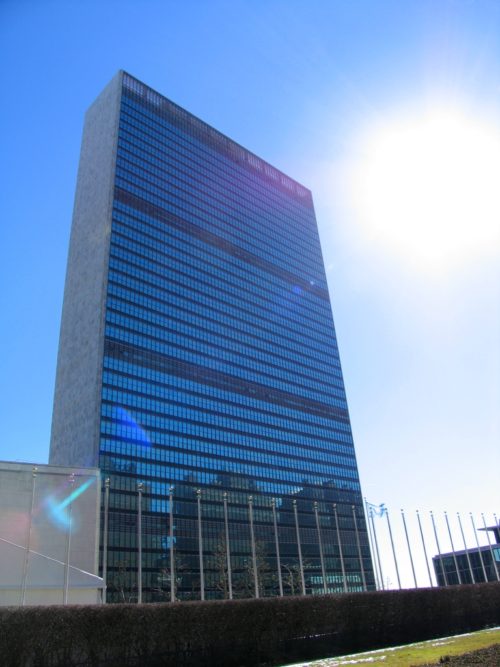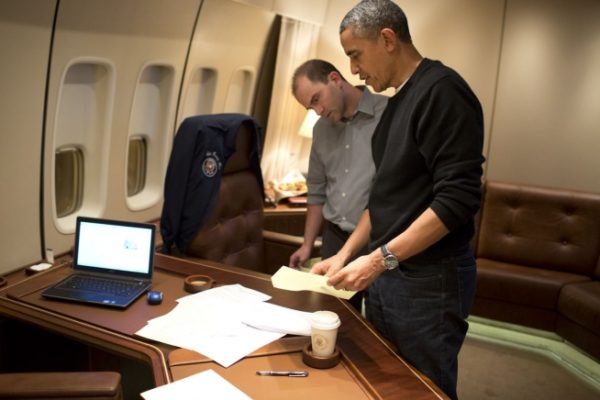The prime minister of Israel doth protest too much.
Benjamin Netanyahu reacted ferociously to the passage late last year of a United Nations Security Council resolution which condemned Israeli settlements in the West Bank.
He was particularly angered by the decision of the United States –Israel’s chief ally — to abstain, thereby allowing the resolution to pass by a resounding margin of 14-0.

The unanimously-passed resolution underscored the fact that the international community unreservedly opposes Israel’s occupation and settlement of the West Bank, which should be part of a future Palestinian state.
The stubborn and short-sighted refusal of the current Israeli government to accept and internalize this glaring reality hardens opinion abroad and isolates Israel.
Israel cannot build and expand settlements while professing to be committed to a two-state solution and a peaceful resolution of the Arab-Israeli conflict. It’s a contradictory policy that cannot be justified or sustained on a political or moral level. The Palestinians deserve statehood and Israel should not stand in the way.
It’s in Israel national interest to reach a rapprochement with the Palestinians, who cannot be denied independence and sovereignty. Netanyahu’s right-wing government, however, is wedded to the debilitating status quo, which will inevitably lead to a one-state solution, a negation of the Zionist dream of a democratic Jewish state.
To make matters worse, Netanyahu now claims that the Palestinian issue is a “relatively marginal” one.
Last week’s Security Council resolution, which was long overdue, was a shot across the bow of Israel’s intransigent and untenable position.
It was brought on by Israel’s unreasonable policies.
To put it bluntly, it was a self-inflicted wound.
But in self-righteous fashion, Netanyahu overplayed his hand, taking self-defeating retaliatory steps against the countries that favored the resolution.
He reprimanded the U.S. ambassador, Daniel Shapiro. He denigrated U.S. President Barack Obama, accusing him of “ambushing” and betraying Israel. He cancelled aid programs in Senegal. He disinvited Ukrainian Prime Minister Volodymyr Groysman to visit Israel.
More egregiously, he ordered the Foreign Ministry to minimize working relations with the countries that cast their ballots for the resolution.

And he asserted that Israel would not abide by the resolution, exacerbating an already difficult situation.
In other words, Netanyahu’s response was nothing short of hysterical and hypocritical.
Even Deputy Foreign Minister Tzipi Hotovely, a hawk on settlement construction and expansion, warned Netanyahu that he had gone too far. “I don’t think that we need to cancel official visits,” she said in a reference to Groysman, the first Jew to become Ukraine’s prime minister.
Hotovely added that Israel has a vital interest in keeping the lines of communication open with its foreign partners and clearly explaining its positions to them.

Obama’s deputy national security advisor, Benjamin Rhodes, made some important points as well. He reminded Israelis that Obama forged unprecedented military and security cooperation with Israel, pointing to the $38 billion memorandum of understanding, which was signed recently.
Rhodes also said the United States had repeatedly warned Israel that “settlement activity was pushing into the West Bank in a way that was making the two-state solution unachievable over time.” Netanyahu, he observed correctly, should not have been “shocked” by the Obama administration’s utter exasperation with him.
The statistics speak volumes.
Nearly 300,000 Jews lived in West Bank settlements when Obama assumed the presidency in 2009. But by the end of 2015, almost 400,000 Jews lived in 123 settlements and about 100 outposts in the West Bank.
In recent weeks, in a bid to keep his coalition intact, Netanyahu not only introduced a parliamentary bill to legalize unauthorized outposts built on private Palestinian land in the West Bank, but boasted of his ardent pro-settlement credentials.
So what did he expect from the United Nations? A shower of compliments?
This is not the end of the story.
On December 28, U.S. Secretary of State John Kerry delivered a comprehensive speech in which he outlined the parameters of a fair and just settlement of Israel’s dispute with the Palestinians.
In mid-January, the United States is expected to attend a conference in Paris under the auspices of France during which a resolution endorsing Palestinian statehood will probably be tabled.
It’s clear that Netanyahu is looking beyond the Obama administration and counting on U.S. President-elect Donald Trump to rally behind his worldview.
Trump appears to be sympathetic.
He opposed UN resolution 2334. He has promised to move the American embassy from Tel Aviv to Jerusalem.
And he has appointed David Friedman, a keen supporter of settlements, as the next U.S. ambassador to Israel. Several months ago, Friedman told a rally in Jerusalem that “the Trump administration will never pressure Israel into a two-state solution or any other solution that is against the wishes of the Israeli people.”
Emboldened by these developments, Netanyahu said the other day, “The resolution that was passed at the UN is part of the swan song of the old world that is biased against Israel, but, my friends, we are entering a new era.”
Equally hopeful that Israel can build much better relations with the incoming Trump administration and leave Obama in the dust, Israeli Culture and Sports Minister Miri Regev declared rhetorically, “Who is Obama? Obama is history. We have Trump.”
Time will tell.
